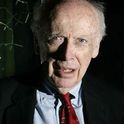I have never really watched porn for personal gratification. I prefer written or illustrated depictions of smut, such as yuri (girl on girl) manga, Alan Moore and Melinda Gebbie’s graphic novel Lost Girls (their attempt to raise the status of erotica by combining it with art) or fanfiction. I do however view a lot of porn incidentally; in snippets posted by other sex workers on X, in the bedrooms of clients, who sometimes like us to watch it together, and in the rare gay bathhouses that occasionally let women in. It used to play on big TV screens in the intro rooms of brothels and parlours, keeping the men primed for the service that was to follow, but now a client is more likely to have it open on his phone, with him looking up briefly from his screen to say hello to the girls. That’s fine with me: I’m more interested in porn from a historical perspective. One of my favourite things to do is to sit in a tub or a sauna and comment on porn with the people around, dating it based on hairstyles and tattoos and condom usage (which wasn’t seen much pre-Aids, became ubiquitous in the 1990s and early 2000s and dropped off again post PrEP).
I’ve never really understood the whole debate about porn giving people unrealistic expectations. To me it offers a fantasy, so watching it for sex education is like watching a James Bond film to learn how to drive. I’ve always agreed with sexologist and performance artist Annie Sprinkle’s argument that the answer to bad porn isn’t to make less porn, it’s to make more good porn. The only time I’d be concerned about someone’s porn consumption is if they were viewing women entirely through the lens of porn, in which case I would consider them to have a problem with misogyny (or transmisogyny or misogynoir, which is misogyny towards trans women and black women specifically, an intersect between transphobia and racism) rather than porn. I believe that porn is a mirror of society, society is not a mirror of porn.
I’m often asked if I notice trends in porn trickling into my work, and I really don’t—I don’t find young men, who supposedly watch more porn, to be more violent or demanding. In fact I think the normalisation of things often seen in porn, like choking, comes more from discussion on social media and memes.
My primary observation about porn isn’t how it effects our sex lives, but what it says about genre. Porn has many of the characteristics of melodrama: exaggerated characters and dramatic events designed to induce an emotional reaction, in this case sexual desire. Porn also focuses on human relationships in environments that appear affluent. (The only place I’ve seen more kitchen islands than in porn is in North American TikToks.)
Melodrama is still popular in many parts of the world, such as Asia and South America, but has largely gone out of fashion in the west, and I wonder if porn and reality TV are the last vestiges of a genre that dominated from the Victorian era right up to the first silent films. Queer activist and organiser Amber L Hollibaugh in her book My Dangerous Desires argues that Harlequin romances (cheap paperback romance novels marketed to women) are sexual media, meant to titillate—and I find it curious that those books draw upon melodrama too. Colleen Hoover also uses melodrama in her novels, which are seen as “low brow” and occasionally condemned as “trauma porn”. Even the Instagram graphics used to promote mass market romance these days—with their listing of tropes and microtropes such as “slow burn” and “age gap” romances, and “he comes in his pants”—remind me of how porn is titled and hashtagged for search purposes.
In her book Indie Porn, sex worker and writer Zahra Stardust writes about the growing obsession with “authenticity” in porn and how, for example, indie porn directors will reject women who have obvious breast augmentations. Ironically, this makes the “real” porn aesthetic just as curated and stereotyped as mainstream porn. It reminds me of the way that reality TV now pretends to show us “behind the curtain”, by drawing on documentary methods. For example, in The Kardashians on Hulu, a crew member will sometimes even step into frame and speak to one of the cast, to make the show appear more genuine. Porn creators are shooting their own content now too, which is undeniably a move towards independence rather than just perceived intimacy. But is this another move away from melodrama?













